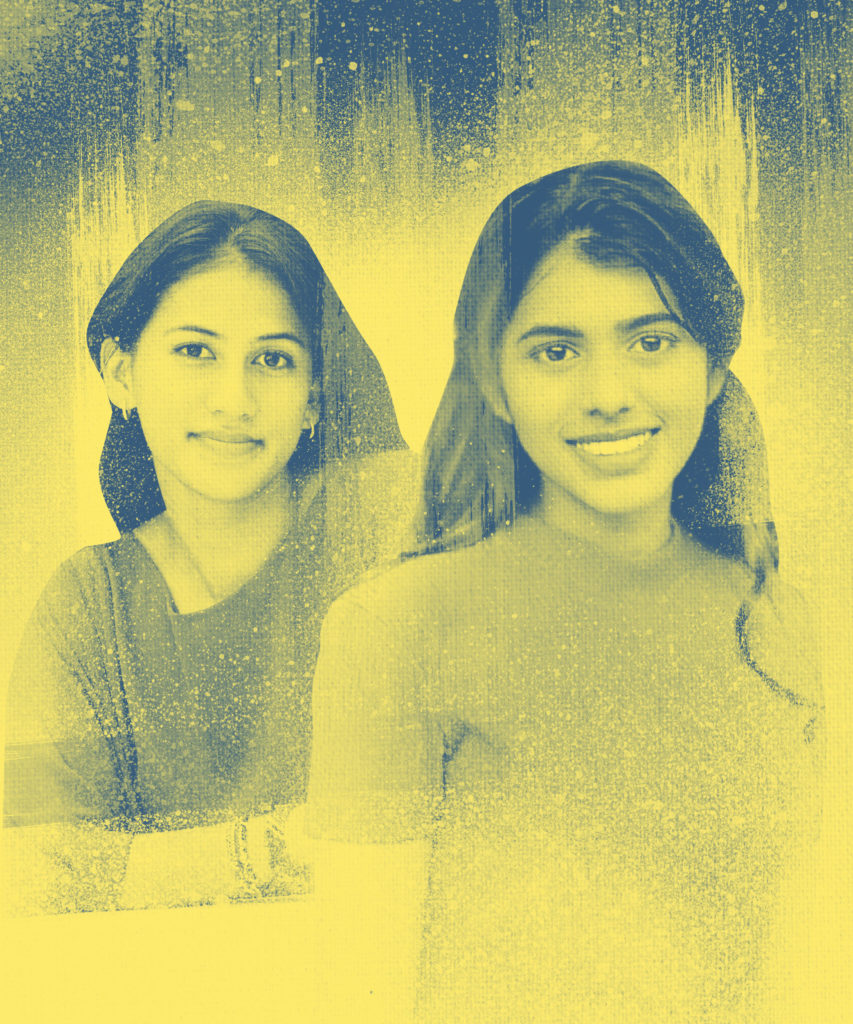

Founders of Women for Refugees
Everyone talks about making a change in the world, but very few actually walk the talk. Davina Devarajan, 26, armed with a background in law from the University of London and a stint with Undi 18 as programme associate, and Arissa Jemaima Ikram, 24, a bright undergraduate in international relations and law, are the two inspiring young women who are the founders of Women for Refugees.
The grassroots movement which was set up last year and recently acquired NGO status, aims to upskill and empower marginalised and refugee women into taking up income and community building initiatives.
Having been actively involved in several other NGOs such as UNHCR, Mercy Malaysia, KAKAK Organisation, ASEAN Cares Foundation and Eco Knights, the pair met via Instagram over their mutual desire to help the refugee community.
“We started off with conversations with each other exploring important issues that were happening in Malaysia,” says Arissa.
“We realised there were a lot of fundamental problems when it came to the refugees in Malaysia,” adds Davina. “Such as Malaysia not signing the Refugee Convention, we realised how hard it is to make a policy change, so we floated around the idea and volunteered with many other organisations.”
Davina and Arissa realised that there were a lot of refugee women who wanted opportunities but weren’t given any. Thus that was the spark that ignited their desire to start something on their own, which specifically aims to help refugee women.
Starting out with small initiatives and literacy programmes with refugee women allowed Davina and Arissa to pivot and establish their mission and vision for their movement, and secure a team of 20 volunteers.
The Refugee Women Entrepreneurship Programme (RWEP) is their main pillar focused on upskilling women on literacy in English and Bahasa Malaysia.
The next phase introduces entrepreneurship, business and leadership skills, while the final phase provides mentorship and training in the execution of their initiatives.
“We currently have 20 women of various ages actively participating in our programme and are estimated to graduate by mid this year,” shares Davina.
“Because we are based in Selayang, we believe in solidifying community per community. Once we have established this group with our programme, we will move on to the next refugee community,” says Arissa.
Since Women for Refugees was started during the MCO, the operations had to very quickly shift from face-to-face interactions to digital. This, shares the two, was another obstacle they managed to overcome.
“At first it was very difficult for the women to adapt. So we had to figure out a way to meet them in the middle,” says Arissa.
“But we did find that they were very enthusiastic to learn. It was actually a request from the women to teach them digital literacy skills,” adds Davina.
For the time being, Women for Refugees work closely following the SOPs, and have two people at a time equipped with a laptop that go over to the community to run the classes.

Some of the other challenges of working with refugee women, says the pair, is setting up a time frame for the completion of the programme.
What was initially set out to be a four- week programme, ends up being a six-month one. However, they realised that they needed to be more flexible with their time, as every individual woman has their own rate of understanding the programme.
Despite this, the pair states that seeing the women eventually take on bigger roles due to the confidence and skills gained during the programme, is indescribably rewarding.
“There has been an obvious change with the women. Initially they were quieter when we first started, but week-by-week we see their personalities start to show, and they’ve actually become more outspoken in asking us to teach them in areas they are interested in,” says Davina.

There has been an obvious change with the women. Initially they were quieter when we first started, but week-by-week we see their personalities start to show, and they’ve actually become more outspoken in asking us to teach them in areas they are interested in.
Davina Devarajan
“We never had to force them to participate and now they’ve taken up leadership positions in their community. Where previously their leader was a male, now it is a woman who is leading and organising community initiatives,” reveals Davina.
Aside from education, Women for Refugees also aids in humanitarian initiatives. Their Food for Thought initiative sees to the supply of food, sanitation and basic necessities for the refugees in light of the recent pandemic.
Then there is The Comfort Project, where Women for Refugees takes on medical cases relating to refugee patients and engages in crowdfunding to pay for treatments.
Thus far, Women for Refugees has helped provide basic necessities to over 80 families and raised funding for medical expenses to eight patients in just a matter of months.
When it comes to finances, the team runs purely on donations for now, but they are looking towards applying for grants to enable them to run programmes more sustainably and for the long term.
Speaking of long-term goals, Davina and Arissa are aiming to raise funds to establish an educational facility within the Selayang area. This would accommodate the rising numbers of child refugees and provide them with the fundamental right to education, as well as run their RWEP initiatives in a properly equipped environment.
“Our projects are aligned in hopes to prove the economic benefits of recognising refugee status on a policy level in Malaysia,” says Davina. “We want to see more refugee women have the opportunity to run their own businesses, and we see ourselves as an empowerment body to provide them with the skills they need.”